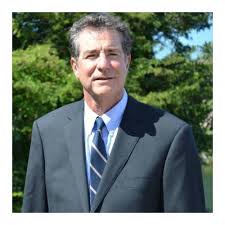To cut to the chase, and summarize the outcome of the interview, Larry King did a great job as a facilitator. Ultimately the truth came out. The war against cancer has been a dismal failure, and the mainstay of conventional cancer treatment, chemotherapy, is largely ineffective against the majority of adult cancer types. Although alternative treatments hold promise for cancer cure, defenders of conventional cancer treatments remain closed minded, staunchly defending the multi-billion dollar cancer industry.
Lets go through the transcript of the show and take a look:
Larry King addressing Otis Brawley: What did you make of what Suzanne just said about cancer, chemotherapy, pancreatic cancer and the like?
Otis replies with comment about Blacks and Uninsured having higher mortality because of not enough conventional medicine, not too little. This is the old bait and switch. The question was cancer and cancer therapy, not the whole field of conventional medicine.
Otis completely sidestepped the question, showing his skills as a politician.
Next, Larry King asks the same chemotherapy question to Nicholas Gonzalez, MD. In a paradoxical twist, the Medical Heretic, Dr Gonzalez, defends chemotherapy. In essence, doing Otis Brawley's job for him. Gonzalez also informs the viewers that chemo doesn't work for the majority of major killer cancers.
GONZALEZ: I think there are cancers, unquestionably, for which chemotherapy works. And Suzanne named several of them. Hodgkin's disease -- they can cure 80 percent early stage with chemotherapy; testicular cancer, 80 percent, at least; certain lymphomas. Childhood leukemia can be cured with chemotherapy. But for the mass -- for the mass of cancers, the major killers, such as metastatic lung, metastatic breast, metastatic colon, metastatic pancreatic cancer, unfortunately chemotherapy really doesn't -- it's not curative. It may prolong life, but it isn't really that beneficial. So we need to look at new options.
Next, Larry asks the very same chemotherapy question to Keith Black, a defender.
KEITH BLACK: Well, I -- I think that it's important for cancer patients to realize that we are making progress in the treatment against cancer. There is more promise. There is more hope. And we're trying new, promising treatments that range from cancer vaccines that work with the body's immune system to cancer stem cells. It's important for all the patients to have information in a very scientific way and there ..... And there -- it's -- and there are just so many chemotherapeutic agents now that are approved by the FDA, that we now prolong life, for a whole variety of cancers, I think we have to be very careful of the information we give to our patients.
Dr Black starts off sidestepping the question with pie in the sky nonsense about cancer vaccines and cancer stem cells, none of which are FDA approved, and are not available for clinical use. Then he finally gets to the point claiming there are many FDA approved chemotherapy agents "that prolong life". Which is true. They prolong life a few miserable months while the patient slowly dies an agonizing death. Dr Black sees this every day, and yet he lives in a fantasy world. Dr Black is believer in the church, and rises as a defender:
BLACK: But what patients need to realize is that the conventional treatments that are approved provide clear benefit to those patients.
What exactly is a clear benefit when the cancer patient, given chemotherapy, is either immediately killed from bone marrow suppression and immune failure, or dies a delayed death over a few months, suffering nausea, inability to eat, and wasting?
Next, Larry goes to the second Medical Heretic with the chemo question.
BURZYNSKI: Chemotherapy can work for some cancers, but cannot work for the majority of cancers. This year alone, two-and-half million people are going to die worldwide just with three cancers -- lung, colon and liver cancer. So what does the chemotherapy cure for these people? It doesn't not exist.
Larry then turns to Otis Brawley for a final stab at the question which he sidestepped initially. What transpires is an amazing display of courage and honesty from The Defender who admits that the dying cancer patient cannot be helped by chemotherapy, and should be allowed to die at a hospice facility.
BRAWLEY: Now, I'm the first to admit that there are some people who get chemotherapy who ought not -- people who are getting it as a third or fourth line therapy for metastatic disease. Frequently, those people are getting treated because the patient wants treatment, because they don't want to die and the doctor wants to give them treatment because the doctor doesn't want to tell them that they are dying. And we need to actually start looking in -- in the United States -- into how we look at hospice and other things. But to say that people who have metastatic disease should not get chemotherapy, blanket and outright, that's just harmful. And it's actually going to hurt some people by saying that.
Although this is obvious to all of us, it is difficult for a Defender to admit that conventional medicine has no cure for cancer. Otis admits it is best to let the cancer patient die humanely, in hospice under heavy drug sedation.
(Note: You can view every article as one long page if you sign up as an Advocate Member, or higher).





